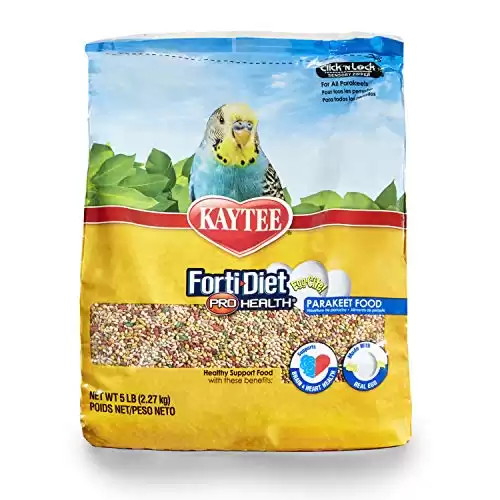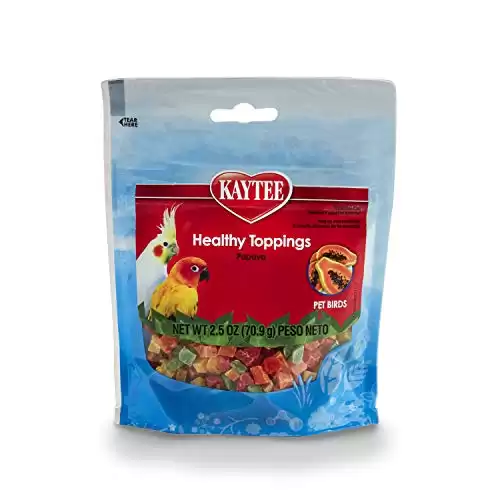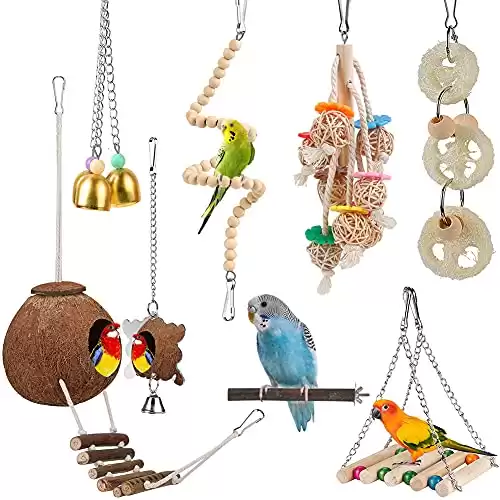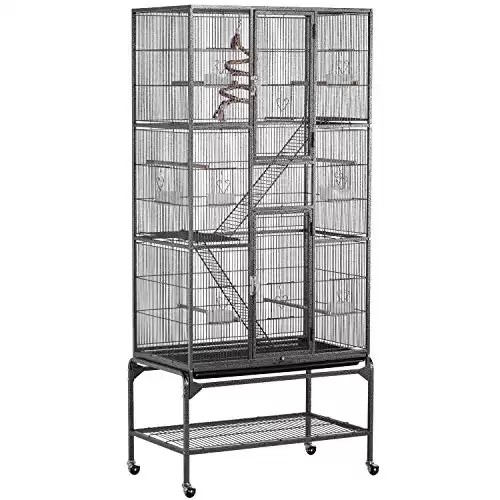
Keeping budgies presents a variety of obstacles. To keep your birds safe, you must monitor the food you are feeding them. Many budgie owners are always on the fence, wondering, “Can budgies eat grapes?”
If you are one of those budgie keepers, you have come to the right place!
In this article, we will discuss whether it is safe to give grapes to your budgie. Also, we will review other meal alternatives that are safe for your small friend.
Make sure to read till the very end to learn all about your pet’s diet. Let’s get started.
Budgies and Grapes
Grapes are beneficial for budgies in many ways. They can provide them with several health benefits, which we will discuss later. Despite this, you should serve grapes to your budgie only in moderation. Over-feeding may even result in certain health complications for your bird.
Grapes are healthy but also contain heavy amounts of fructose. Fructose buildup can lead to obesity and lethargy in your bird.
How Much Grapes is Too Much When It Comes to Budgies?
Given that grapes are not toxic for your feathered companion, feeding grapes once a week is a good idea.
One or two small grapes are the upper limit in this case. Don’t feed them more than this suggested quantity.
A budgie’s diet is often tallied in the ratio of 80 to 20, which implies that pellets make up 80 percent of their food, while veggies, berries, or fruits make up the remaining 20 percent.
Feeding Instructions
Grapes aren’t meant to go inside a feeder. Therefore, you should cut them in half. Chop the grapes into bite-sized pieces and place them into the feeder. As for the seeds and skin of the grape, budgies can quickly eat fruits with skin.
These are edible and rich in fiber, so you don’t have to worry about removing them. Be sure to rinse the fruits and vegetables thoroughly before feeding them to your birds.
Benefits of Feeding Grapes to Budgies
Vitamins
Grapes are a good source of Vitamins C, B1, and B6.
- Vitamin C: Vitamin C helps strengthen your budgie’s immune system and also reduces stress. It is a good source of antibodies, which help parakeets fight basic illnesses. It is essential for your little one’s mental health.
- Vitamin B1: Vitamin B1, a.k.a. Thiamin, helps regulate your bird’s neurological system and also helps keep their muscle-mind coordination in check. Lack of Vitamin B1 can lead to loss of appetite, convulsions, and, in extreme cases, death. Pellets contain a good amount of Vitamin B1, so you don’t have to worry about this much.
- Vitamin B6: We all know the importance of breaking down protein to promote easier digestion and maintain a healthy lifestyle. Vitamin B6 does that for your Parakeet. A Vitamin B6 deficiency can lead to stunted growth and a loss of appetite. It might also hinder egg production in your bird.
Potassium
The benefits of feeding potassium to your bird are threefold. First, it helps speed up their metabolism. This reduces blood pressure and aids with water retention in hot weather. Lastly, it reduces the risk of diseases like kidney stones and osteoporosis.
Other Food Options for Budgies
Beyond grapes, what can a parakeet’s diet consist of? When it comes to a healthy diet, variety is important. A standard seed diet is beneficial, but it would make up only a small part of your budgie’s diet.
Following are some of the food items that you can add to your parakeet’s diet:
Fruits
Fruits should make up a minor part of your pet’s diet, as they are rich in minerals, vitamins, and antioxidants. Budgies can consume several fruits without side effects or health problems.
Good examples are oranges, apples, bananas, mangos, melons, blueberries, strawberries, cherries, blackberries, apricots, etc. Each of them should be given only raw and unprocessed.
To avoid harming your pet in any way, feed fruits to them in moderation. Do not leave raw fruit in your bird cage for too long, as it can catch germs or flies, making your bird sick. Remove the uneaten food within two hours of feeding.
Budgies can also be fed dry fruits such as dried grapes, dried mangos, and raisins. These adorable creatures are very fond of consuming dry fruits because of their smooth texture. This makes them easier to consume and offers enhanced sweetness.
You can also go with carrots, broccoli, cauliflower, cucumber, and celery.
Pellets
Pellets are the primary food source for budgies. They should make up about 70% of what your pet eats. While introducing pellets, you must be patient and careful, as budgies need time to adapt to new food.
Choosing the right pellets for budgies is also very important. Avoid brands that contain artificial preservatives and additives. Start by providing the pellets in small amounts, then slowly increase the portion size as your bird begins to eat.
Nuts
Budgies are nuts for nuts! Nuts such as almonds, pecans, walnuts, peanuts, and pistachios are a great addition to pellets because they are high in protein.
Tip –
- Don’t feed Brazilian nuts to your birdy, not even in small quantities, as they could be very harmful.
- Remove the shells from nutty items and break them into tiny pieces so that your bird can more easily swallow them.
Summing Up
Nothing causes more anxiety for a pet lover than the thought of their beloved buddy getting sick. Budgies are extremely sensitive and require special attention when it comes to food.
As a responsible pet owner, you should also try to make the eating activity fun by introducing variety.
Lastly, if you notice any change in your budgie’s droppings, such as a change in color or watery stool, make sure to consult a professional and remove the fruit that you are feeding.
I hope you found this article on can budgies eat grapes helpful. If you have any questions, please leave a comment below!

My name is Niels Joensen, and I’m the creator of Wings and Beaks. I got my first two budgies at the age of 13, and right away, I fell in love with these beautiful tiny birds. Wings and Beaks is where I share my knowledge and passion for budgies with other bird owners.



